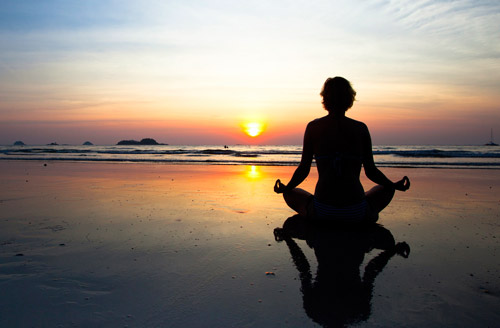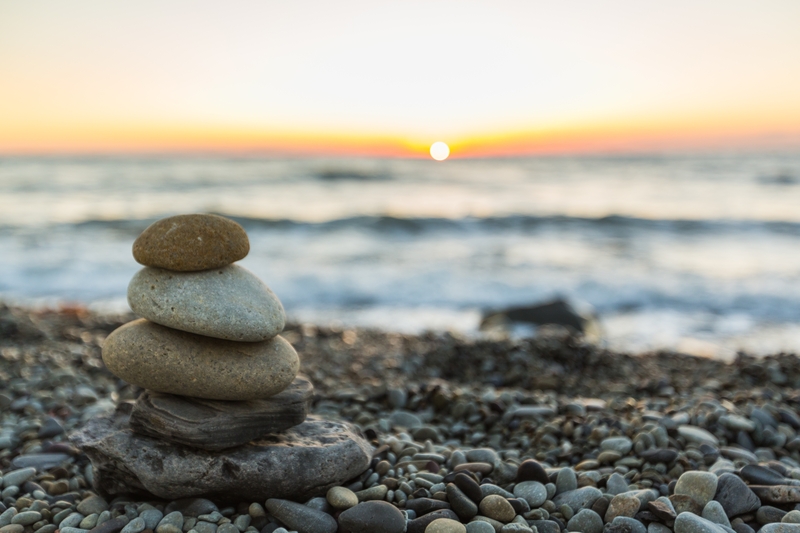Swati Desai, Ph.D., LCSW
Dr. Desai is the Director of Integrative Psychological Services at the Akasha Center, Meditation Teacher, Psychotherapist, and a regular blogger at Huffington Post. To make an appointment with her or to talk to her, please email at meditate@swatidesai.com or call at (310) 308 9531.
Unable to bear the intense pain of her son’s death, almost losing her mind, Gautami went to the Buddha and asked him to revive her son. “If what I hear about your powers is all true, then bring my son back to life”, she cried out loud. Buddha asked her to fulfill one condition before he could do what she wanted. “Bring me one sesame seed from any household in town where there has been no death”. Gautami combed the whole town looking for such a sesame seed, and returned exhausted, without the sesame seed Buddha had requested. She understood what he was trying to teach her. There is no household without the pain of loss. Human lives, no matter how good and how prosperous, do encounter truly difficult and intensely trying times at some point.
This universality of human pain had set Buddha out to look for an answer to the question of how to alleviate the pain, till he found enlightenment in the form of the four noble truths and the eightfold path towards enlightenment.
When I first started studying Buddhist Psychology, Buddha’s four noble truths and the eight-fold path towards enlightenment, beyond the rules and the analysis, there was one thing that was striking about all the teachings. This one thing, which is supposed to be the foundational stone before one begins to internalize the teachings, is COMPASSION. The more I paid attention to this idea and attempted to truly understand the implications, I found myself delighted and inspired. The idea of having compassion for the world around us exists in several religious, philosophical, psychological, and humanistic teachings, however, in Buddhist meditations, the art and technique of cultivating compassion is so well developed and such an integral part of the Buddhist life style, that I could not but be amazed by its power.
Let me tell you why.
Dalai Lama defines Compassion as wishing that oneself and others be free from suffering. As a psychotherapist, and as part of any helping/healing profession, the ability to hold compassion is what motivates us from going to work every day and enables us to witness unbearable pain. For those who are not in a helping/healing profession, holding compassion for oneself (self-compassion), and for others (for the universally difficult emotions of fear, anger, shame, guilt, loneliness, confusion), makes the world around them a better place to live. The non-judgmental view of the humanness of our condition, makes them better parents, better friends, less critical of themselves, and better global citizens.
Compassion makes all teachings and rules less dogmatic, more human, and more realistic. The definition of compassion, the wish to be free from suffering, makes it possible to hold it even for the most sociopathic elements in our world.
One very important understanding of compassion is the following. It is not simply a sugary sweet way of talking or being. It is not a lame excuse for inaction. It is not condoning acts of violence. In fact, compassion is a force, compassion changes the impulsive way you would take action against the injustice, and compassion gives you a more effective and long-term way to strike against the perils of your life. Compassion is not the “bleeding heart” pity for others, neither it is a “feel good” act of giving money away. Compassion is a view of the world that we are all in it together, we all make mistakes, we all have a right to correct them, and that cruelty and inconsideration can be replied by strong and firm response instead of striking back with the same cruelty.
Thinking about compassion in extreme and politically jaded situations (how to respond to murderous crimes, terrorism, invasions, and so on) becomes tricky. I will leave it to the masters to answer such questions. However, one thing I can absolutely promise, in your personal life – towards spouses, kids, friends, acquaintances, service people – learning to hold the right type of compassion will enhance the quality of the world around you to an unlimited degree!
I hold one-on-one meditation sessions, on-going meditation groups, and meditation workshops for couples. My inspiration for doing this is COMPASSION and I believe that spreading the joy of compassion is a compassionate act!







